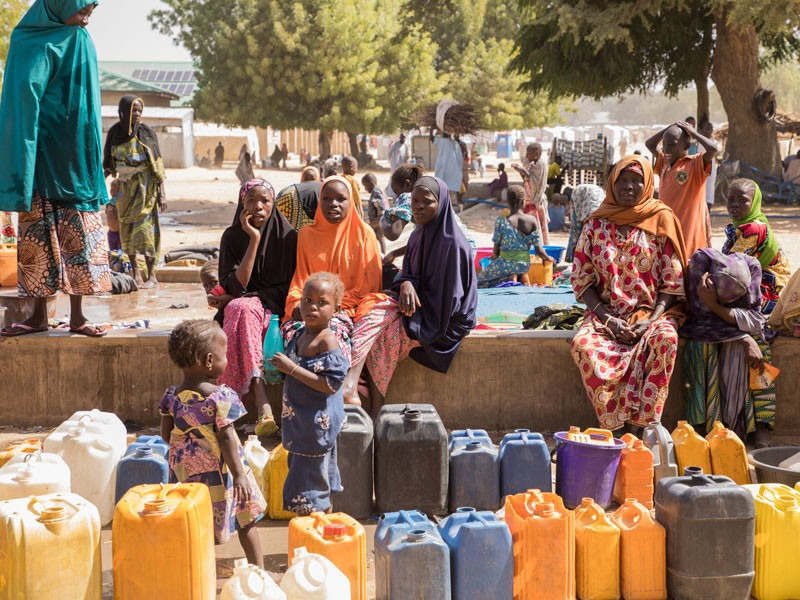You are hungry, and you have neither money in your wallet nor food at home. Given the choice between a $10 note and a sack of rice of equal value, which would you choose?
Barring an unusual proclivity for rice, you will take the money, walk to a store and buy what you need most. You would spend some of your money on rice or other staples, some on vegetables, some on spices and maybe even save a bit of spare change.
If you were to take the $10, you’d be like most people – including those in the direst circumstances. Be it the extreme poor, those displaced by natural disasters or those fleeing from violence, when given the choice between donations of food, clothing or other so-called in-kind donations or cash, the poor and vulnerable are like everyone else – they want cash.
In the world of international development, giving money to the extreme poor without any strings attached is called an unconditional cash transfer. The rationale behind the idea is simple: The recipient of money will know how to improve his or her own situation better than the donor.

But unconditional cash transfers raise an interesting question: Will people spend the money wisely? Or will they waste it on non-necessities, or even luxury or vice goods like alcohol?
While these questions seem ideological, they can be answered with data.
The evidence is clear: People make good choices. In 2010, researchers gave unconditional $200 grants to those who would typically be considered a risky investment: people with criminal records and drug addiction issues in the slums of Liberia. Contrary to what many expected, these men spent the majority of the money on basic necessities or used it as seed investments to start businesses.
Such findings are in line with hundreds of studies that have shown that cash grants don’t increase spending on temptation goods like alcohol but have significant positive effects on an array of outcomes. Unconditional cash transfers can, among many other things, improve children’s health, including mental health, improve food security, increase schooling, reduce household violence and raise household income (beyond the grant itself).
In addition to those effects that donors of cash hope for, cash recipients often react in unexpected ways. In Kenya, recipients started replacing their thatched roofs with metal. The investment, chosen by the participants themselves, paid off: The one-time cost of durable roofs ultimately saved money on the frequent replacement and repairs, leading to more disposable income – which we know tends to be spent on things that increase household well-being.
In an unconditional cash transfer program for extremely poor community members in Ghana, recipients surprised researchers as well: Much of their new money went to gifts to other community members. At first glance, this might seem frivolous. Surely, investments in health services or nutrition for their kids would have been wiser? Understanding local context paints a different picture: The gifts were elements of reciprocity. Neighbors had helped in times of need; now the cash recipients were returning favors to again be equal members of their communities.
While there is still a lot of research to be done into long-term effects of unconditional cash transfers, the results we have are solid. This fact should give us pause: How certain are we that an educational program, a business training for youth or a donation of food does more good than giving the beneficiaries cash?
The saying goes that if you give a man a fish, you feed him for a day; teach a man to fish, and you feed him for a lifetime. International development programs often miss the more obvious solution: Give a man money and he can go to learn whatever he chooses.
Some time ago, Bill Gates used the fish analogy to promote handing out chickens to poor people and argued that “cash is fleeting” and “not an investment that families can use to increase their income over time” – missing the obvious point that chickens are acquired with cash.
Many development experts have proposed that the effectiveness of cash transfers should be the benchmark for all development work. While we as development professionals may believe that our work does good, we should indeed be able to show that it does more good than giving money directly.
After long deliberation, the U.S. government has begun to follow this line of reasoning and is comparing several programs against the effects of giving out cash. First findings indicate that cash transfers achieved promising results while the first comparison program, a nutrition and sanitation program run by an international NGO, had barely any impact at all.
Elevating cash transfers to a default benchmark would elevate the development sector: It would discipline us to think hard about the goals we want to achieve, about how much money we are spending, if we are spending to any effect and if any of this spending can outperform the quality decisions that poor people make for themselves. Ultimately, holding us to this much higher standard would improve the lives of people we are trying to serve. It would make us better at what we do.
Kolja Wohlleben is a Technical Manager for Education Technology with the Creative Development Lab.